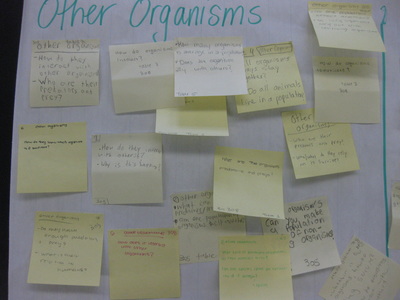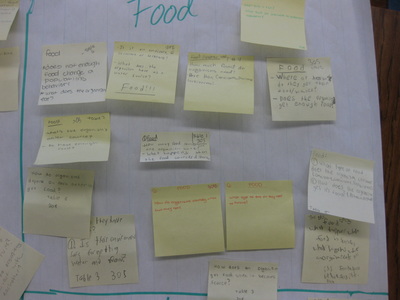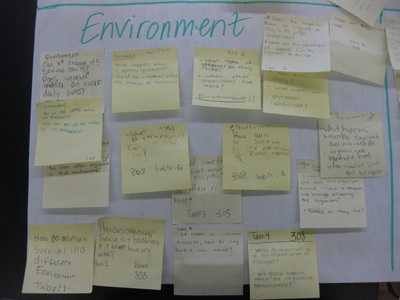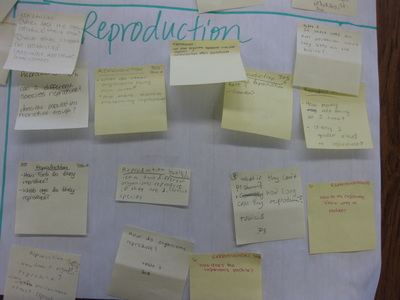Sixth grade students are seeing how biologists study interactions between organisms and their environment. Biologists are also concerned with populations of organisms, and not just one specific organism within a population. As they study populations, biologists try to make sense of the changes that can occur with a population. Sixth graders worked on their questioning techniques (just like real scientists do) to uncover questions biologists would ask of a changing population. We narrowed down the categories of what would cause changes into these four factors: food, other organisms, environment, and reproduction. We're working on what types of questions biologists would ask...
|
|
Great LakesThe phenomena behind our study this unit involve events that transpired in the Great Lakes from 1930 to 1990. How great is it that we can make connections to Lake Michigan, which is so close by to our school?!?! ArchivesCategories |




 RSS Feed
RSS Feed